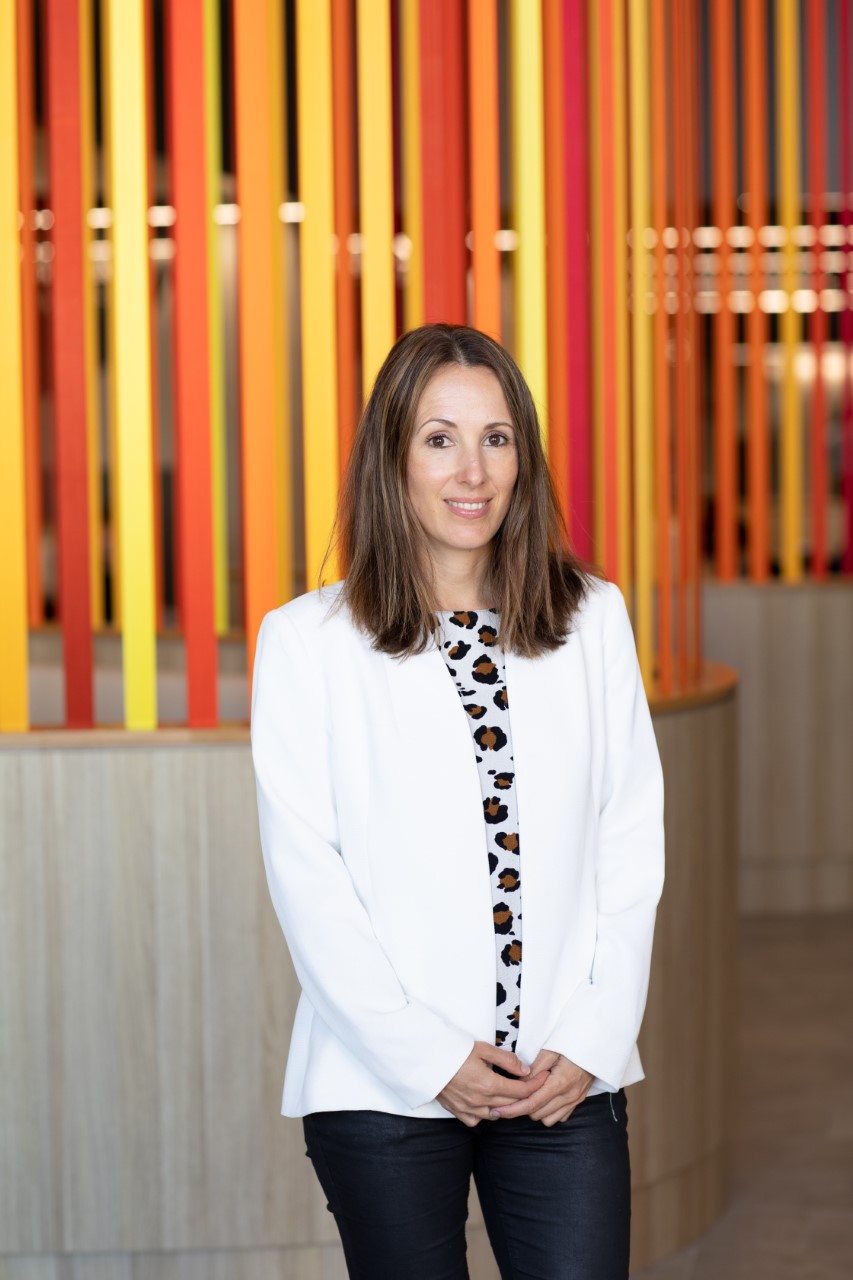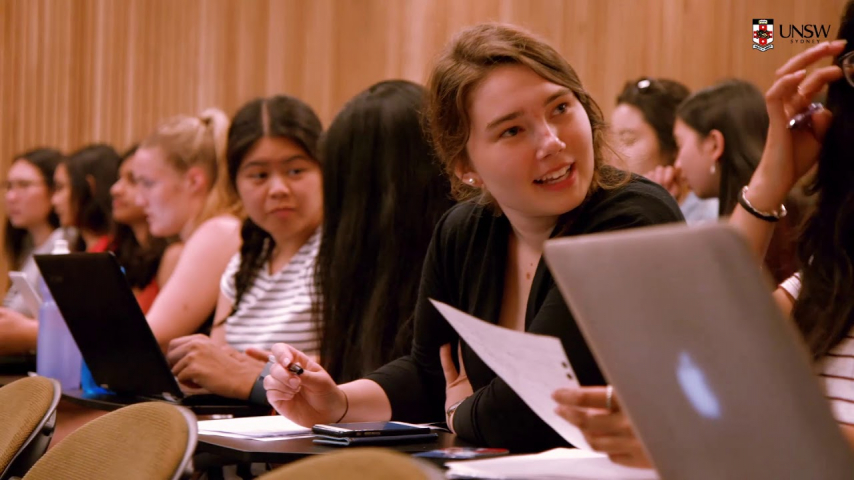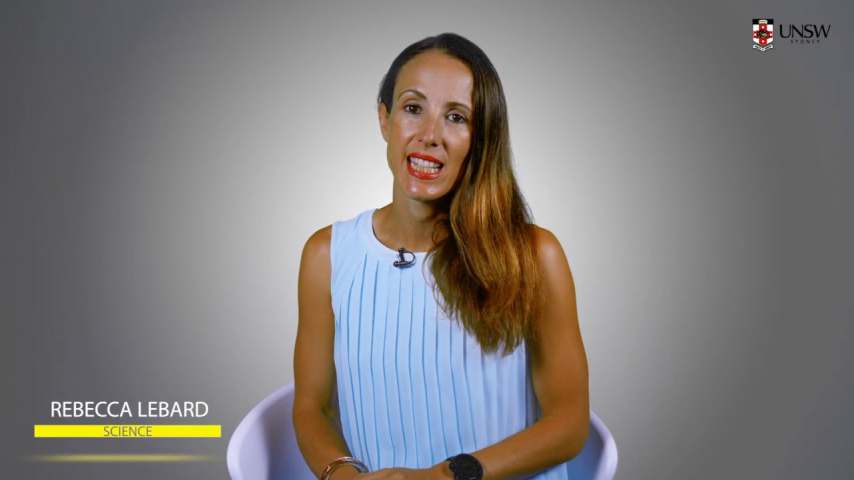
Fields of Research (FoR)
Curriculum and Pedagogy, MicrobiologyBiography
Rebecca is a senior lecturer in the School of Biotechnology and Biomolecular Sciences and Associate Dean Education, innovation and student experience for the Faculty of Science at UNSW.
Rebecca completed a BSc (hons) and later a PhD at the University of Sydney on the mechanisms for maintaining multi-drug resistance plasmids in Staphylococcus aureus. Following this, she worked on projects investigating plasmid DNA inheritance in Archaea,...view more
Rebecca is a senior lecturer in the School of Biotechnology and Biomolecular Sciences and Associate Dean Education, innovation and student experience for the Faculty of Science at UNSW.
Rebecca completed a BSc (hons) and later a PhD at the University of Sydney on the mechanisms for maintaining multi-drug resistance plasmids in Staphylococcus aureus. Following this, she worked on projects investigating plasmid DNA inheritance in Archaea, microbial molecular markers to trace sources of water pollution, and microbiological production of secondary metabolites.
She also holds a MEd (higher education) from UNSW, and teaches undergraduate courses in the Faculty of Science and the medical program. Rebecca is a Senior Fellow of Advance HE (formerly the Higher Education Academy UK). She was awarded the UNSW Vice Chancellor’s Award for Teaching Excellence in 2015, and a citation for contributions to student learning in the Australian University Teaching Awards, 2016, recognising her teaching excellence.
Rebecca's scholarship in learning and teaching focuses on the importance of quantitative skills to STEM students (particularly those in biology). She developed a model of our signature pedagogy in science, and is interested in how students can gain competence and confidence in quantitative skills in their science learning.
She is also interested in helping education focused academics evaluate their teaching practice to demonstrate impact. She obtained $123,000 in funding to lead a community of practice collaboration to develop a series of videos and website on this, resulting in Evaluating Teaching Practice.
My Grants
R LeBard (2019) Quantitative skills in biology. Australian Council of Deans of Science - Teaching and Learning Centre. $1000
R LeBard & A Torda (2018-2019) A support network for evaluation of teaching practices & innovation, ensuring educational excellence. UNSW Education-focused foundation funding. $123,000
Kornfeld, G; Lutze-Mann, L; Polly, P; Wijenayake, G; LeBard R (2016) Integration of real and virtual experiences in undergraduate laboratories. UNSW SEF#4 Learning and Teaching Funding $20,000
LeBard R (2012) Demonstrating the ability of putative partitioning systems from the haloarchaeal model organism Halobacterium sp. NRC-1 to enhance plasmid maintenance. UNSW ECR grant $7,500
LeBard R (2010) UNSW Faculties of Excellence Funding $3,000
Thompson RE; Micolich AP; LeBard RJ (2009) Critical conversations: designing an institutional process to constructively challenge perceptions about academic numeracy of students and staff. UNSW Seed funding for ALTC Learning & Teaching Grant Applications $3,700
LeBard R (2009) UNSW VC Childcare support fund for women researchers $1,000
My Qualifications
BSc (Hons), University of Sydney
PhD, University of Sydney
Grad Cert (university learning and teaching), UNSW
MEd (higher education), UNSW
My Awards
Australian University Teaching Award, Citation for contributions to student learning, 2016
Vice Chancellor’s Award for Teaching Excellence, 2015
My Research Activities
My scholarship in learning and teaching focuses on the importance of mathematics to STEM students (particularly those in biology. I developed a model of our signature pedagogy in science, and how mathematics is integral to learning the practice of science. My current work investigates how maths taken in high school and confidence in maths influences success in tertiary biology. This work is significant nationally, as the number of students taking maths is at its lowest levels in fifty years, and as there is predicted to be a shortage of STEM graduates for future jobs. This work will help inform the levels of maths needed to ensure success for students studying STEM courses, and the need for interventions in biology.
I am a molecular microbiologist, completing my PhD at the University of Sydney on the molecular characterisation of mechanisms maintaining multi-drug resistance plasmids in Staphylococcus aureus. In my time at UNSW, I've supervised honours and PhD students in projects investigating how how plasmid DNA is inherited in Archaea, how molecular markers can be used to trace sources of water pollution, and the production of secondary metabolites.
My Research Supervision
Areas of supervision
Past students:
Nikola Markovina (USyd) (Honours, class I, 2016), Mitchell Legeret (Honours, class IIA, 2016), Alper Yasar (PhD, 2015), Adam Austin (Honours, class I, 2015), Narelle Hegarty (CSIRO) - Recipient of the Dean’s Honours Relocation Scholarship - (Honours, class I, 2014), Stella Sheeba (Honours, class IIA, 2013), Tiffany Chen (Honours, class I, 2012), Elizabeth Gorgievski (Honours, class I, 2012).
My Engagement
Vice-president (communication), Australian Society of Microbiology (2017-)
CSIRO Scientists in Schools participant
Author for The Conversation
UNSW leadership positions
Faculty of Science Educational Excellence Committee (2018-2019)
Faculty of Science Teaching and Quality Committee (2015-2016)
Program Committee member for the Australian Conference on Science and Mathematics Education planning committee (2014)
Faculty of Science Education Committee, Faculty of Science (2013-2014)
Phase 1 committee, Faculty of Medicine (2013-2021)
Strategic Priorities in Learning and Teaching, Faculty of Science (2008-2009)
My Teaching
I currently convene the following courses:
- BABS1201 Molecules, cells and genes
- BABS1202 Applied Biomolecular Sciences
I currently teach into the following:
- BIOC2101 Principles of Biochemistry (advanced)
- BIOC2181 Fundamentals of Biochemistry
- CHEM1829 Biological chemistry for optometry students
- Phase one of the medical program
Contact
Publications
ORCID as entered in ROS
Videos

